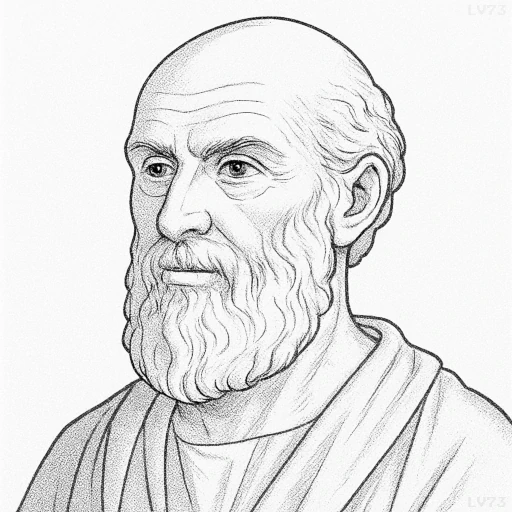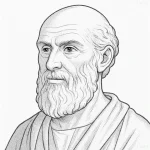“Whenever a doctor cannot do good, he must be kept from doing harm.”

- c. 460 BC – c. 370 BC
- Greek
- Physician, “Father of Medicine”
table of contents
Quote
“Whenever a doctor cannot do good, he must be kept from doing harm.”
Explanation
This quote is consistent with the ethical principles found in the Hippocratic Corpus, particularly the idea of “primum non nocere”—“first, do no harm”—though that exact Latin phrase does not appear in Hippocrates’ works. The sentiment expressed here strongly reflects Hippocratic ethics, emphasizing that when beneficial treatment is not possible, the physician’s primary duty is restraint, to avoid worsening the patient’s condition.
In ancient Greece, medical knowledge was limited, and many interventions could be as dangerous as the disease itself. Hippocrates advised physicians to rely on observation and judgment, and to understand when inaction was more appropriate than uncertain or aggressive action. This quote embodies a humble recognition of medicine’s limits, and the responsibility not to act recklessly out of pride or desperation.
In contemporary practice, the principle underlies modern medical ethics, clinical trials, and informed consent. If no treatment can help a patient, the focus shifts to palliative care or harm reduction, rather than futile or experimental interventions. This approach respects both the patient’s dignity and the limits of medical science, reinforcing the enduring wisdom that protecting from harm is itself a form of care.
Would you like to share your impressions or related stories about this quote in the comments section?
